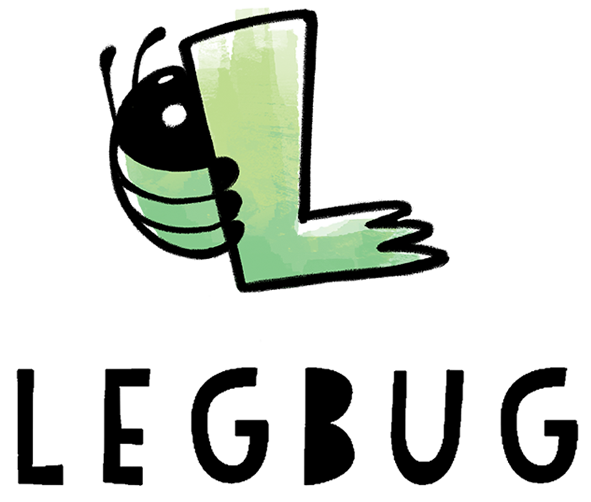Pixar taught me a lot about regularly getting feedback from other creatives and iterating on work till you execute it to the highest standard. I also met many of my world-class illustrators there in children's book classes with Lissa Rovetch. One of my great joys with Legbug is helping phenomenal artists get their work out to the world.
Principles
We believe that the bulk of the power and money should go to the creators, not to the middle men. Power for creative control and personal vision. Money so that creators can support themselves and their families and have the independence to create more great work. That's why our standard picture book contract is a 50/50 royalty split between author and illustrator.
Indie publishing revolution
There is a revolution going on in indie publishing right now, sparked by the rise of online bookstores, e-books, and print-on-demand models. Over half of all book sales in the US are now online at Amazon. Amazon sells 250,000 independently published e-books per day and indie publishers have over 25% of Amazon's print book market as well. This revolution has already hit other book genres like romance, thrillers, and sci-fi. We believe it is coming for children's books too. Some of the benefits of indie publishing are:
- Time to market. When we finish a book, we hit the publish button and it's on over 50 online stores around the globe overnight. When a traditional publisher "finishes" a book, they're usually at least a year away from releasing it. That means we can release more books faster.
- Full creative control. We tell stories that aren't watered down by marketing departments or gatekeeper biases.
- Higher royalties. Traditionally published creators typically get a 5-15% royalty on each book sale. We get a 70% royalty by going directly through the distributors. That means we have to sell 5x fewer books to compete with traditional publishers.
- Virtually zero up-front costs. Due to e-books and free tools, you can create and publish a book for free. The old days of self-publishing required spending thousands of dollars to print physical inventory. Then the creator had to eat that cost if they didn't sell all of their books. In indie publishing, e-books allow for free infinite copies and print-on-demand enables a creator to operate with zero physical inventory.
Goals
Our long-term goal is to be for children's books what indie icons like Hugh Howey and Image Comics are for sci-fi and comics, respectively. There are already some huge self-publishing success stories and it's even starting to happen in children's books.
Experiment
This whole operation is an experiment in progress. The indie publishing revolution may not disintermediate children's books the same way it has other genres. We may fail spectacularly. I'm okay with that, as I'm a strong believer in failure. The only way to forge a new path is to try, stumble, and try again till you get it right.
Future Blog Posts
This blog will document our journey as we attempt to prove a new indie kids' book model. Follow along to see if we succeed or crash and burn. Additional blog posts will introduce you to our creators and take you behind-the-scenes for the in-depth creative process of making our best-selling books. Subscribe to our mailing list below to get notified when new posts come out. And click the Share button to share with any friends who may be interested in following along on our journey. Thank you.





